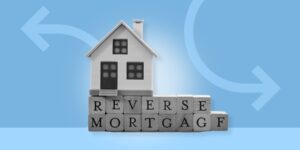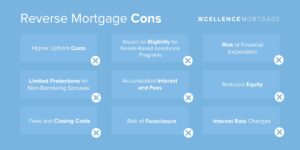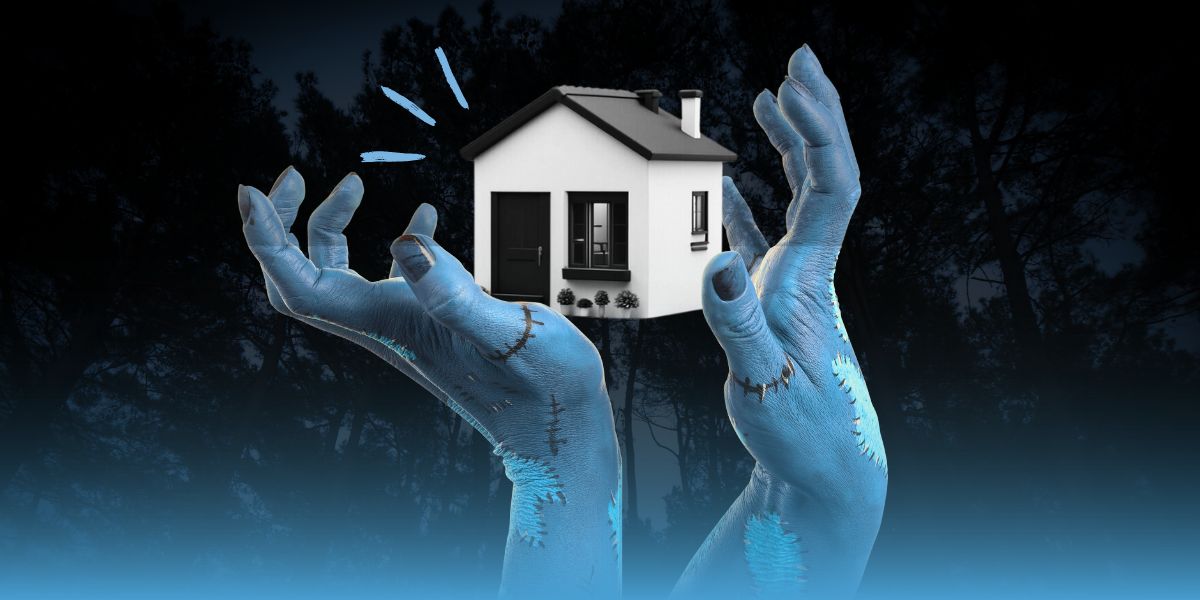Discover the benefits and drawbacks of reverse mortgages to make an informed decision about your financial future. Learn how to weigh the pros and cons of using your home equity to supplement your income, pay off debt, or enhance your lifestyle.

Unlock the secrets to a more secure financial future with a reverse mortgage. This type of loan can provide financial freedom and stability, but it’s essential to weigh the pros and cons before making a decision.
When used correctly, a reverse mortgage can be a game-changer for retirees, allowing them to supplement their income, pay off debt, or simply enjoy their golden years without worrying about money. However, it’s crucial to understand the potential risks and benefits to ensure this financial tool aligns with your unique goals and circumstances.
In this comprehensive guide, we’ll delve into the advantages and disadvantages of reverse mortgages, helping you make an informed decision that suits your needs. From navigating complex financial jargon to exploring alternative options, we’ll provide you with the knowledge and insights you need to take control of your financial future.
What is a Reverse Mortgage?
A reverse mortgage is a type of loan that allows homeowners 62 years and older to borrow against their home equity. Unlike a traditional mortgage, you don’t have to make monthly payments, and the loan is repaid when you sell your home or pass away. This loan is designed to provide you with access to cash, which can be used to cover expenses, pay off debts, or enhance your lifestyle.
Reverse Mortgage Pros
Before considering a reverse mortgage, it’s essential to weigh the benefits against the potential drawbacks. Here are 9 advantages that can help you make an informed decision:
1. Eliminating Monthly Mortgage Payments
One of the most significant advantages of a reverse mortgage is the elimination of monthly mortgage payments. For example, imagine receiving a lump sum payment of $50,000 from a reverse mortgage and using it to pay off your existing mortgage. You’ll no longer have to worry about making monthly payments, freeing up more money for other expenses.
2. Unrestricted Use of Tax-Free Funds
A reverse mortgage provides access to tax-free funds, giving you financial flexibility. For instance, you can choose to receive a lump sum payment, a flexible line of credit, monthly payments, or a combination of these options. This allows you to use the funds in a way that suits your financial goals.
3. Lifetime Security
A reverse mortgage line of credit offers lifetime security, ensuring that funds will always be available as long as you have remaining funds in your line of credit and adhere to your loan obligations. For example, let’s say you have a $50,000 line of credit and use $20,000 to pay off an existing debt. You’ll still have $30,000 remaining in your line of credit, available for future needs.
4. Using a Reverse Mortgage to Buy a New Home
A reverse mortgage can be used to refinance an existing mortgage and purchase a new home without monthly mortgage payments. For instance, let’s say you’re looking to downsize to a smaller home or move to a different location. With a reverse mortgage, you can use the proceeds to pay off your existing mortgage and put the remaining funds towards a new home.
Let’s say you’re retired and living on a fixed income of $2,000 per month. You may struggle to cover expenses such as property taxes, insurance, and maintenance. With a reverse mortgage, you can borrow against your home equity to receive a lump sum payment or monthly payments that can help cover these expenses.
5. Helps Secure Your Retirement
A reverse mortgage can provide a steady stream of cash to help cover expenses in retirement. For example, let’s say you’re living on a fixed income and need help covering living expenses. With a reverse mortgage, you can tap into your home equity to supplement your income and ensure financial stability.
6. You Can Stay in Your Home
With a reverse mortgage, you can keep your home and still access the cash you need. This means that you won’t have to worry about being forced out of your home or having to move into a smaller or less desirable location.
7. You’ll Pay Off Your Existing Home Loan
You can use the proceeds of a reverse mortgage to pay off an existing home loan, freeing up money for other expenses. For example, let’s say you have an existing mortgage with a balance of $100,000 and an interest rate of 4%. With a reverse mortgage, you can borrow against your home equity to pay off this mortgage.
8. You Won’t Have Tax Liability
The funds you receive from a reverse mortgage are considered a loan advance, rather than income, so you won’t have to worry about paying taxes on them. For instance, if you receive a lump sum payment of $50,000 from a reverse mortgage, you won’t have to pay taxes on that amount.
9. You Can Use the Proceeds to Improve Your Home
With a reverse mortgage, you can use the proceeds to make improvements to your home, such as remodeling, repairing, or replacing parts of your home. For example, let’s say you’ve lived in your home for 30 years and it’s starting to show its age. You can use the proceeds from a reverse mortgage to pay for necessary repairs or updates.

Cons of Reverse Mortgages
While reverse mortgages can be a useful financial tool for seniors, they’re not without their drawbacks. Here are 9 potential downsides to consider before deciding if a reverse mortgage is right for you:
1. Higher Upfront Costs
Reverse mortgages, especially HECM loans, come with higher upfront costs than traditional loans. The FHA mortgage insurance fee, for instance, can amount to:
- 2% upfront fee
- Yearly 0.50% mortgage insurance premium (MIP)
This insurance protects both borrowers and lenders from default risks, ensuring that neither party will owe more than the home’s value. For instance, a 2% upfront fee on a $50,000 loan would be $1,000. Add to that the yearly 0.50% mortgage insurance premium (MIP), and you’re looking at an additional $250 per year. That’s a total of $1,250 in upfront costs.
2. Impact on Eligibility for Needs-Based Assistance Programs
Funds from a reverse mortgage may not be considered income, but they can still affect eligibility for needs-based programs like Medicaid or Supplemental Security Income (SSI) To avoid losing eligibility for needs-based programs like Medicaid or Supplemental Security Income (SSI), it’s crucial to track your expenses and withdrawals from a reverse mortgage. Let’s say you withdraw $10,000 from your reverse mortgage to pay for home repairs. Make sure to record this withdrawal and ensure you’re not exceeding the income limits for your program.
3. Risk of Financial Exploitation
Seniors are vulnerable to financial exploitation when considering reverse mortgages. Be cautious of unscrupulous individuals who may try to take advantage of seniors considering a reverse mortgage, they might propose a bad investment or try to convince you to withdraw more money than you need. Always do your research and work with reputable professionals to protect yourself from financial exploitation.
4. Limited Protections for Non-Borrowing Spouses
Prior to 2015, non-borrowing spouses under 62 didn’t have adequate protections in reverse mortgage arrangements. However, HUD has since implemented changes to safeguard eligible non-borrowing spouses. These spouses must maintain the home, pay property taxes and insurance on time, and use the home as their primary residence. Let’s say your spouse is under 62 and is not a borrower on the reverse mortgage; they’ll need to take on these responsibilities to protect their interests.
5. Accumulated Interest and Fees
With a reverse mortgage, you’ll still be responsible for paying property taxes and insurance on your home. Failure to do so can lead to accumulated interest and fees.
For example, if you receive a lump sum payment of $50,000 from a reverse mortgage and use it to pay off your existing mortgage, you’ll still owe the loan balance plus interest. If you’re unable to pay these expenses, the loan balance will increase by $1,000 per year (assuming a 5% interest rate).
6. Reduced Equity
Using a reverse mortgage to pay off your existing mortgage or other debts can reduce your equity in your home. This may be a concern if you plan to sell your home or leave it to heirs. Let’s say you receive a lump sum payment of $50,000 from a reverse mortgage and use it to pay off your existing mortgage. You’ll still owe the loan balance plus interest, which could reduce your equity in the home by thousands of dollars.
7. Fees and Closing Costs
Reverse mortgages come with fees and closing costs that can add up quickly, reducing the amount of cash you receive from the loan. For instance, let’s say you receive a lump sum payment of $50,000 from a reverse mortgage and use it to pay off your existing mortgage. You’ll also need to pay fees and closing costs, which could total $5,000 or more. That’s a significant chunk of change that could reduce the amount of cash you receive from the loan.
8. Risk of Foreclosure
If you’re unable to pay property taxes and insurance on your home, there’s a risk of foreclosure. Let’s say you receive a lump sum payment of $50,000 from a reverse mortgage and use it to pay off your existing mortgage. You’ll still be responsible for paying property taxes and insurance on your home. If you’re unable to pay these expenses, the loan balance will increase by $1,000 per year (assuming a 5% interest rate), and you’ll also incur additional fees.
9. Interest Rate Changes
Changes in interest rates can affect the amount of cash you receive from a reverse mortgage. For instance, if interest rates rise from 4% to 5%, the amount of cash you receive from the loan may decrease by $2,500 (assuming a 5-year loan term). This could impact your financial plans and goals.

Frequently Asked Questions
Q: What are the key benefits of a reverse mortgage?
A: You do not have to make any monthly mortgage payments with a reverse mortgage. One of the ways to access funds is through a line of credit that grows in availability over time.
Q: What are the drawbacks of a reverse mortgage?
A: A reverse mortgage will have higher closing costs than a traditional loan.
Q: When is a home equity loan better than a reverse mortgage?
A: A home equity loan is better if you need short-term financing.
Q: Does the bank own the house if I get a reverse mortgage?
A: No. A reverse mortgage is just a loan; therefore, you retain property ownership upon entering a reverse mortgage agreement.
Q: Do you need a good credit score to get a reverse mortgage?
A: No. A reverse mortgage loan does have credit guidelines, as all loans do, and having good credit improves your chances of getting the loan at the best terms. However, a reverse mortgage can still be obtained even with less-than-perfect credit.
Conclusion
While there are many benefits to borrowing against your home equity, such as helping secure your retirement and providing access to cash, there are also many potential drawbacks to consider.
At Xcellence Mortgage, we understand that every situation is unique and that what works for one person may not work for another. That’s why we’re here to provide personalized guidance and support throughout the process.
If you’re considering a reverse mortgage or have any questions about this type of loan, we encourage you to contact us today. We’d be happy to help you explore your options and determine whether a reverse mortgage is right for you.
Click here to read “Unveiling Mortgage Rates: What Is A Mortgage Rate, & Why Is It Essential for Homebuyers’ Success?” and get the inside scoop on how to make informed decisions about your financial future.

